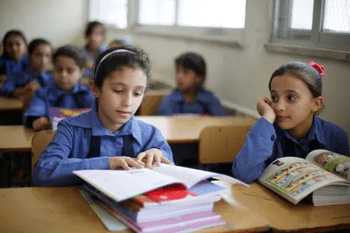Are you ready to take on the world and become a global citizen? In this fast-paced, interconnected era, being a leader means more than just having the right skills and knowledge. It requires an understanding of diverse cultures, empathy towards others, and a strong sense of social responsibility. Education plays a crucial role in shaping future leaders who can navigate our complex world with confidence and compassion. Join us as we explore the importance of education in global citizenship training and discover how it prepares the next generation to lead with purpose and make a positive impact on our planet.
Strategies for incorporating global citizenship training into educational curriculum
In today’s interconnected world, it is becoming increasingly crucial for educational institutions to incorporate global citizenship training into their curriculum. This type of training goes beyond the traditional academic subjects and focuses on developing critical skills and knowledge that prepare students to become responsible global citizens.
So, what are some strategies that can be implemented to effectively incorporate global citizenship training into the educational curriculum? Let’s take a closer look:

- Introduce cross-cultural learning opportunities: One effective way to foster global citizenship among students is by providing them with opportunities to learn about different cultures and perspectives. This could include organizing cultural exchange programs, inviting guest speakers from diverse backgrounds, or incorporating multicultural literature in the curriculum.
- Incorporate current global issues: Another strategy is to integrate current global issues into the classroom discussions and activities. For example, teachers can facilitate discussions on topics like climate change, human rights violations, or refugee crises and encourage students to think critically about these issues from a global perspective.
By implementing these strategies, educational institutions can successfully incorporate Education for human flourishing training into their curriculum and prepare future leaders who are not only academically competent but also socially responsible and culturally aware individuals. It is crucial for schools to recognize the importance of this type of training and take the necessary steps to equip students with the skills and knowledge needed to thrive in an increasingly interconnected world.
In today’s increasingly interconnected world, global citizenship has become a crucial aspect of education. It is not enough for students to have knowledge in their respective fields; they must also possess the skills and mindset necessary to navigate and contribute positively to our global community. Therefore, it is essential for educational institutions to incorporate global citizenship training into their curriculum.
The following are some strategies that can be adopted by schools and universities to effectively incorporate global citizenship training into their educational programs:
- Integrate Global Issues into Existing Courses: One way to seamlessly incorporate global citizenship training into the curriculum is by integrating global issues into existing courses. For example, while teaching economics, teachers can discuss the impact of globalization on different economies or while teaching literature, students can explore diverse cultural perspectives through reading texts from around the world.
- Offer Cross-Cultural Experiences: Another effective strategy is to provide opportunities for cross-cultural experiences such as study abroad programs or virtual exchange programs with partner schools in other countries. These experiences allow students to gain a deeper understanding of different cultures and develop empathy towards people from diverse backgrounds.
- Encourage Critical Thinking and Problem-Solving Skills: Global citizenship training involves developing critical thinking skills and problem-solving abilities that enable individuals to analyze complex global issues and come up with sustainable solutions. Educational institutions can foster these skills by incorporating project-based learning activities that require students to work collaboratively on real-world problems.
- Promote Multilingualism: Learning a new language not only opens up opportunities for communication but also promotes an appreciation for different cultures. Schools can offer foreign language classes or host language immersion events where students get a chance to practice their language skills with native speakers.
- Involve Community Service Projects: Involving students in community service projects that address local or international issues encourages them to take action towards making a positive impact in society. This helps develop responsible citizens who understand their role in creating a better world.
By implementing these strategies, educational institutions can effectively incorporate global citizenship training into their curriculum and prepare future leaders who are equipped to thrive in the global community. It is essential for schools and universities to recognize the importance of global citizenship education and take proactive steps towards nurturing students with a global mindset.

